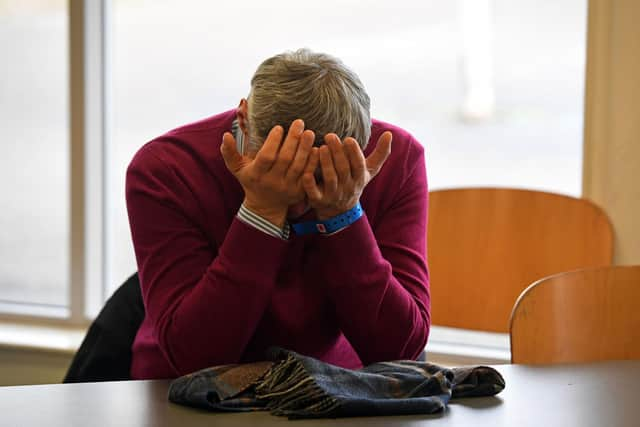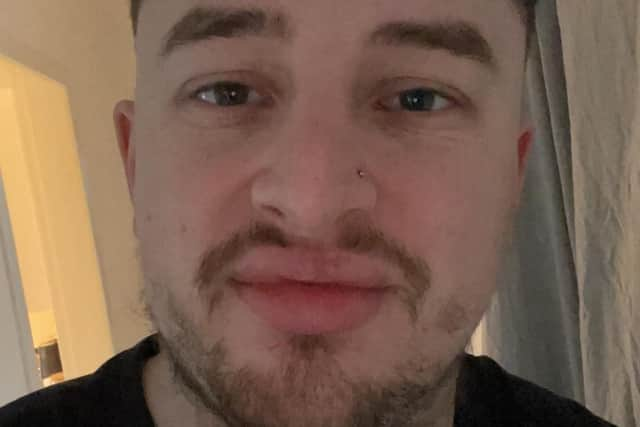My homelessness was predicted years ago - but we already have the answers to stop it - Jamie Dalgoutte
That should be shocking, but to anyone with experience of the care system, it’s not.
I spent 21 years in it, with 14 different carers and with two stints in a residential home before my fifth birthday. I grew up in a robust, but dysfunctional system.
Advertisement
Hide AdAdvertisement
Hide AdThere is no doubt the odds were stacked against me. In fact, research from the Centre for Excellence for Children's Care and Protection, based at the University of Strathclyde in Glasgow, shows there is a 50/50 chance I would become homeless. Evidence suggests 30 per cent of my care-experienced peers become homeless and live in precarious living conditions.


That is not something we, as a society, should ever be willing to accept.
Growing up, I was so confused about what a ‘home’ was that I opted out of using the word. I got my first place in my early 20s, but I always just referred to it as ‘the house’, because I didn't know what the word home meant. I knew the word meant something to other people, obviously. It meant something to friends and course-mates, but to me it was just an empty word.
That is the context within which the Scottish Government will, in autumn, introduce new duties to prevent homelessness – in a society where we can predict someone will likely experience homelessness, then watch as it happens.
Back in 2018 I ended a toxic relationship. I was fortunate to have a mortgage, but living alone, I struggled to keep up with payments; all the while knowing that being blacklisted could impact my financial situation for the rest of my life.


I was an unemployed student, relying on the savings I had prepared for seven months. Soon I was forced to choose between heating my home and paying my mortgage.
When I was forced to give up my house, the homelessness system would have been one option – but the thought of entering it filled me with panic, because it would have meant giving up my dog, Olivia. She is my whole world – my rock – and it wasn’t something I could consider.
So what happened instead? I jumped into another hasty relationship to prevent myself from being on the street. I wasn't letting go of my dog.
Advertisement
Hide AdAdvertisement
Hide AdThings are better now. I work for Your Voice Inverclyde Community Care Forum now, as their community development and engagement officer, to help provide an opportunity for communities to have a platform to be heard and to be seen.
We work with the local Health and Social Care Partnership to make sure communities know what their needs are, and so that people with lived experience lead the way.
Because too often in politics, the voices of people with experience of homelessness are ignored. Politicians and policy-makers draw up grand plans, without listening to the people who feel the impact of the systems that govern and shape our lives. But it is only through listening to people's experiences, and understanding their lives and stories, that we can truly understand the impact that decisions made by politicians have on the lives of people in our communities.
Your Voice were one of several organisations to help shape a new report from Crisis, the homelessness charity, on how to help prevent homelessness from happening in the first place.
Released this week, ‘Home is the Foundation’ is based on interviews and focus groups with people experiencing homelessness across Scotland – to explore their experiences of the homelessness system, and to examine what could have been done to have prevent it.
The report shows there are a very wide range of different causes of homelessness – from relationship breakdown, to financial problems, to domestic abuse and beyond.
It is a report that highlights how the triggers for the homelessness of a young person who has been asked to leave the family home are very different from the triggers for someone who has experience of problem substance use and experience of the criminal justice system. It shows how the triggers for someone who has experienced bereavement, lost his job and gradually accumulated rent arrears are very different from the triggers for a woman who has experienced domestic abuse and struggled to get a joint tenancy transferred into her own name.
As the Scottish Government prepares to introduce measures to prevent homelessness in the coming Housing Bill – through enabling people to get support earlier and by widening responsibility for preventing homelessness across public bodies – it is essential that different people’s needs are taken into account.
Advertisement
Hide AdAdvertisement
Hide AdThe system is not set up to be flexible enough to help people when they need it. For me, the important thing was keeping my dog, but for others it might be something else, like being able to stay near friends or family, or having the right home to suit their needs.
Because we know people will often seek support, but go ignored. We know there are red flags – in interactions with health services or in the justice system, that someone is at risk of homelessness. They are flags we need to act on.
Now, years later, I know what home means. It’s like an anchor on a boat. Something that steadies you, or keeps you in one place. Something that you can use to secure yourself, when everything around you changes. A home is a place of safety, at its route. Beyond that it is for memories, love, celebrations and families.
We know what causes homelessness, and when you know what causes something, you can know how to stop it.
Scotland needs to push on with plans to prevent homelessness. We need to act now, to stop more people from experiencing it.
To find out more about the new report, ‘Home is the Foundation Perspectives on prevention from people with experience of homelessness’, visit: https://www.crisis.org.uk/ending-homelessness/homelessness-knowledge-hub/
- Jamie Dalgoutte is a community development and engagement officer for Your Voice Inverclyde Community Care Forum and a guest speaker for national homelessness charity Crisis.
Comments
Want to join the conversation? Please or to comment on this article.